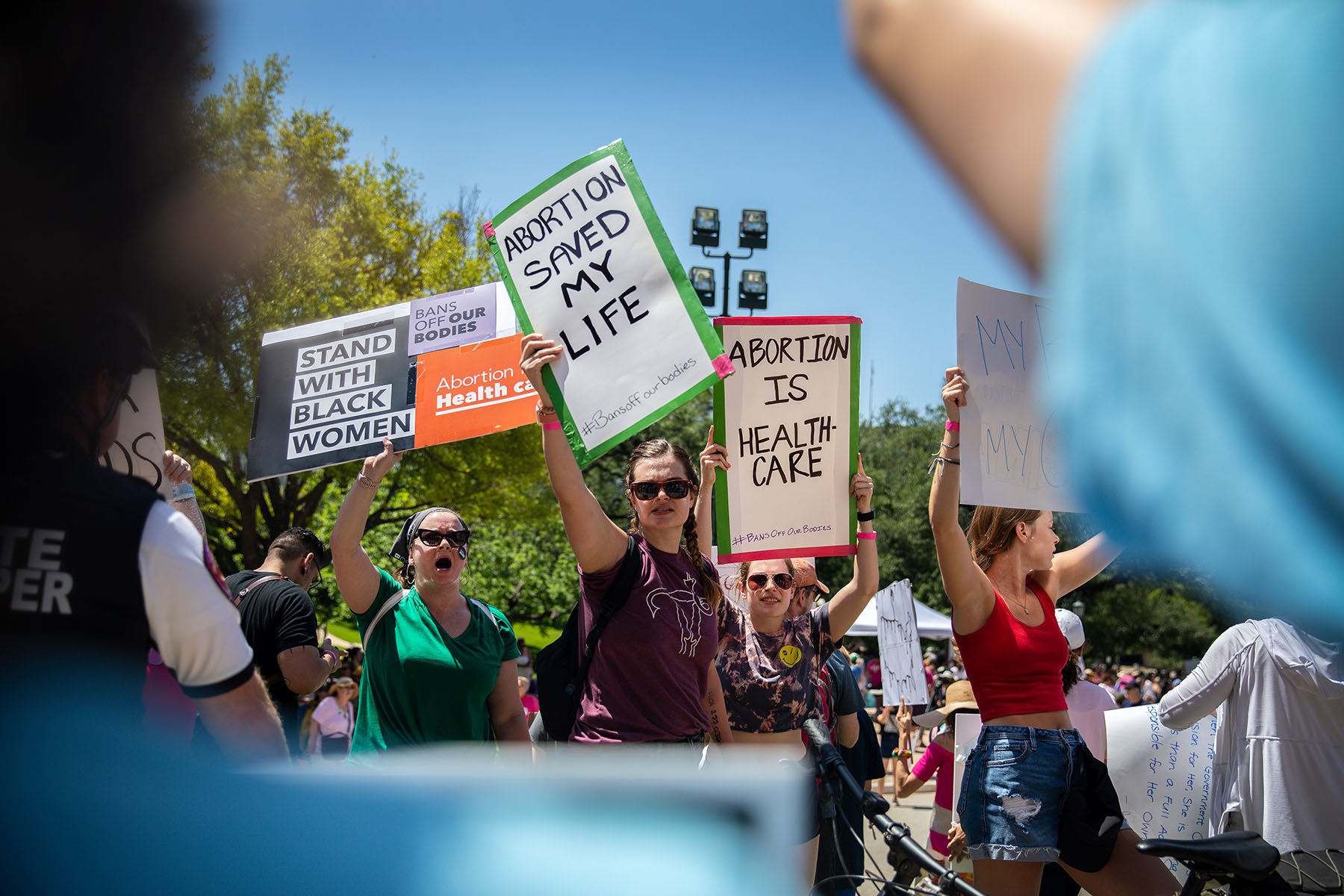When fewer people can get abortions, property crime rates go up, a new working paper out Monday suggests.
The analysis, published in the National Bureau of Economic Research, underscores the connection between abortion access and economic stability: more people becoming pregnant and being forced into poverty led to higher property crimes. It tracks the impact of a Texas abortion law enacted in 2013, which imposed a host of new regulations on abortion providers. Those restrictions resulted in the vast majority of the state’s clinics closing; as a result of the law, the distance patients had to travel for an abortion more than doubled, from an average of 21 miles to 53.
Most people who seek abortions are already parents, and their main reason is that they cannot afford another child. Years of research has underscored that denying people abortions entrenches them deeper into poverty.
“Whenever there’s an unplanned or mistimed parenthood, this can actually create some economic shock to these families,” said Erkmen Aslim, an economist at the University of Vermont and the paper’s lead author. ”These downstream outcomes can have huge economic and social outcomes.”
The research team found a link between obstacles to abortion and economic harm — evictions, mortgage delinquency and increased income inequality — but also to increases in property crimes like car theft, burglary and larceny.
The effects were most visible in counties that saw the biggest growth in travel needed for an abortion. Researchers divided affected Texas counties into three categories — those where travel times increased by 25 miles or more, by 50 miles or more and by 100 miles or more — and compared those against control counties that did not experience an increase of 25 miles or more to an abortion clinic.
Counties with meaningful increases in travel saw higher rates of property crime by women and men alike — a finding that suggests that the economic consequences of unplanned pregnancy people regardless of gender, the researchers said. The increases were also more visible for adults compared to minors.
Violent crimes mostly did not go up, with the exception of increases in robbery, which can also be a result of economic desperation, in counties where abortion-related travel distances grew by 100 miles or more.
“We have just discovered a really strikingly large causal relationship between restricting abortion access and property crime,” said Caitlin Myers, an economist at Middlebury College and co-author on the study. “It’s quite striking. It really points to economic vulnerability and striking destabilization for families.”
Working papers published by the nonprofit National Bureau of Economic Research have not yet undergone peer review. But they are considered a useful jumping off point for economic debate. The bureau’s standards are rigorous, and most of its working papers end up published in academic journals.
The paper does not examine the consequences of the more recent Supreme Court decision to overturn Roe v. Wade, which allowed states to ban abortion. But its authors are now starting to examine whether the decision has continued to drive up property crime.
Aslim said he would now anticipate an even larger increase. Texas is one of a dozen states to have outlawed abortion almost entirely, and people living in the state typically have to travel hundreds of miles to get an abortion.
“It’s likely based on everything we know about how [Roe v. Wade’s overturn] is impacting births that this has continued,” Myers said. “But we’re going to measure it. We need to measure.”
The distance people travel for care nationwide could soon grow. An appeals court ruled last week to uphold a new federal policy allowing for “defunding” Planned Parenthood, prohibiting the family planning provider from participating in the federal Medicaid program. The organization estimates the decision could result in the closure of as many as 200 clinics, mostly in states where abortion is legal — a development that could lead to fewer options and longer travel times for people journeying to another state for an abortion.
“Planned Parenthood is an extremely important provider of reproductive health care, particularly in rural and underserved areas,” Myers said. “In a lot of states that do have abortion services in kind of smaller towns and more rural areas, the services are being provided by Planned Parenthood.”
As states have adopted more restrictive abortion laws, health care providers have developed other methods to make the procedure more accessible, including prescribing and mailing abortion medications for patients to take in their homes. That option was significantly less available in 2013, and has helped thousands of people get abortions without traveling for care. Abortion opponents have made restricting medication a top priority, filing civil and criminal suits against telehealth abortion providers and passing new legislation in Texas meant to halt telehealth abortions.
Still, the rise of telehealth hasn’t bridged the gap for many Americans, especially those living the farthest from brick-and-mortar abortion providers, Myers said. Even as more people shift toward getting medications online, she said, the birth rate in states with abortion bans has continued to increase.
“We should be thinking about what this means for the social safety net we provide for poor families and the ways in which these destabilizing effects can have ripple effects into their communities,” she said.






